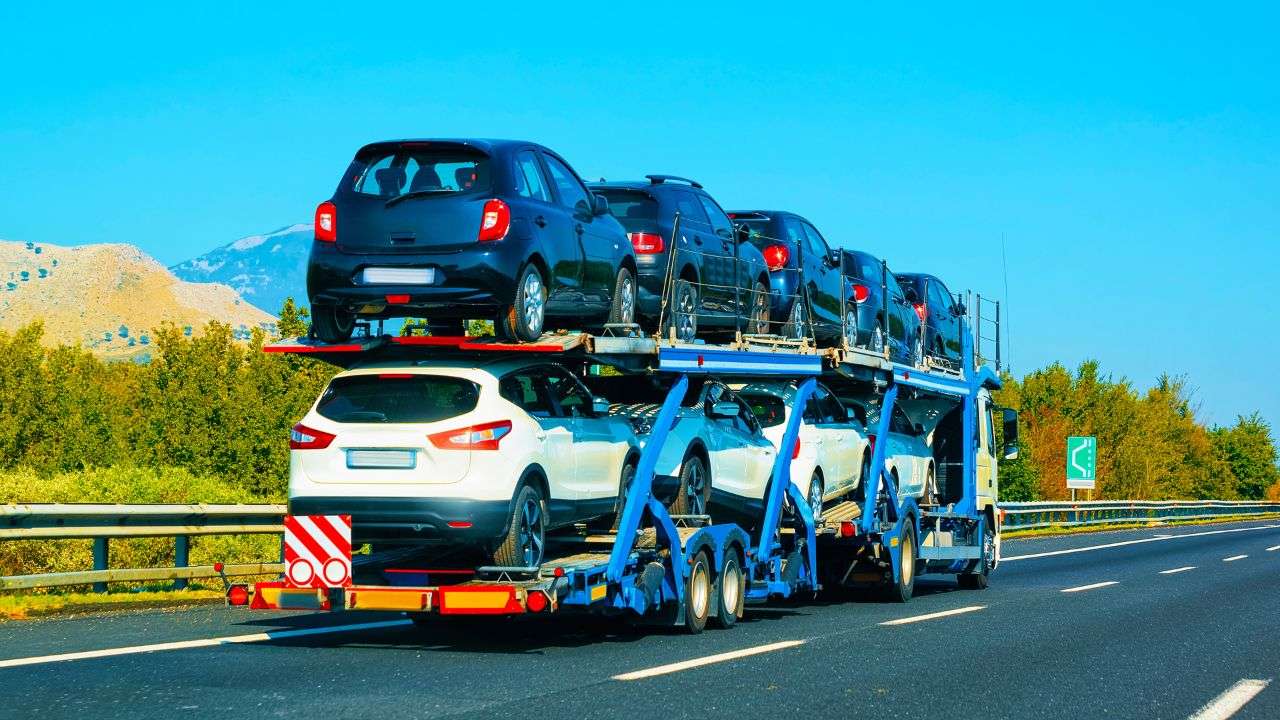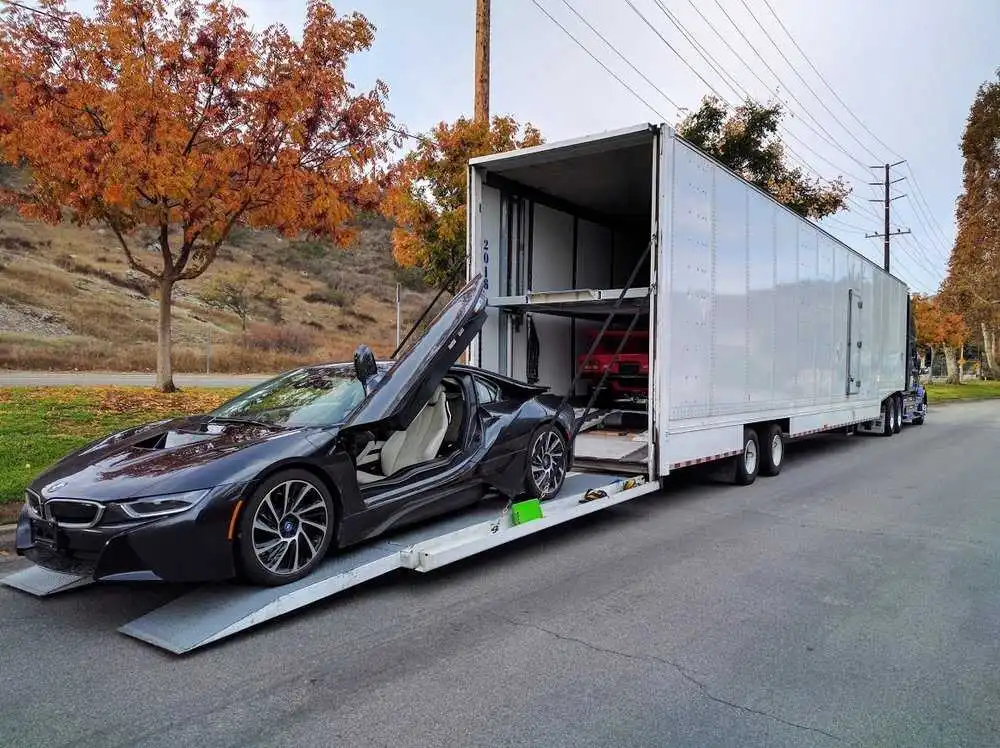
Government Rules and Regulations for Car Shipping in San Francisco
Summary:
Shipping a car to or from San Francisco requires compliance with key federal, California state, and local city regulations. This guide covers essential rules from the FMCSA and DOT, including licensing, insurance, and documentation requirements. It also explains California-specific laws such as CARB emission standards, DMV registration timelines, and consumer protections. At the local level, San Francisco enforces restricted loading zones, temporary permit requirements, and anti-idling laws. You’ll also find information on shipping costs, tolls like the Golden Gate Bridge, and California use tax for out-of-state vehicles. This guide also outlines the best practices like verifying carrier credentials and documenting your vehicle, to ensure a smooth and compliant shipping process.
Introduction
If you want to ship your vehicle to or from San Francisco, you have to follow government and local state rules and regulations. Understanding these rules can help avoid fines, delays, or unexpected complications. Below, we break down the key government rules and regulations for car shipping in San Francisco.
Federal Regulations for Car Shipping in U.S.
In the United States, the car shipping industry is regulated by federal agencies, primarily the Federal Motor Carrier Safety Administration (FMCSA) and the Department of Transportation (DOT). These organizations ensure that auto transport companies operate legally, safely, and ethically. Below are the key federal regulations that govern vehicle transport:
Registration with FMCSA and DOT
Every legitimate car shipping company must be registered with the FMCSA and have a valid Motor Carrier (MC) number and USDOT number. These credentials confirm that the company is authorized to operate interstate transport services. You can verify a company’s credentials using the FMCSA’s Company Snapshot tool.
Cargo Insurance Requirement
Auto transport companies are required to carry a minimum level of cargo insurance. This policy helps protect your vehicle in case of damage during transit. It’s important for customers to ask for proof of insurance and understand what the policy covers before booking a shipment.
Bill of Lading (BOL)
The Bill of Lading (BOL) is a crucial document in the car shipping process. It serves as a legal agreement between the car owner and auto transport company. The BOL outlines the vehicle’s condition during pickup and after delivery. This is the proof in case any disputes arise over damage.
Weight Restrictions
The Federal Highway Administration (FHWA) sets strict weight limits for transport carriers. Overloaded trucks not only pose safety risks but can also lead to fines, delays, and even denial of transport service. Ensuring that vehicles are empty of personal items and within the legal weight limits is essential for a smooth shipping process.
California State Regulations for Car Shipping
In addition to federal laws, California has its own set of regulations that govern vehicle transport within the state. The purpose of These rules is to ensure environmental safety, consumer protection, and public road safety. Below are key state-specific regulations auto transporters must follow when operating in California.
CARB Emission Standards
Transport trucks operating in California must comply with emissions standards set by the California Air Resources Board (CARB). These rules require the use of clean diesel engines and technologies that reduce pollution and nitrogen oxide emissions. Non-compliant vehicles may be denied entry or face penalties.
Vehicle Registration Requirements
If you’re moving a car into California, it must be registered with the California Department of Motor Vehicles (DMV) within 20 days of arrival. This applies to both residents and new arrivals to the state. Failing to register the vehicle on time may result in fines or penalties.
Consumer Protection Laws
California has strong consumer protection laws. The Bureau of Automotive Repair (BAR) oversees auto-related services, including vehicle transport companies, to prevent fraudulent or deceptive practices. If issues arise, consumers can file complaints through BAR for investigation.
Driver Compliance and Safety
Driver roles are always important. Transport drivers must follow California’s hours-of-service regulations, which limit the number of hours a driver can be on the road. These rules are in place to prevent fatigue-related accidents and ensure road safety for everyone.
Before you get into the city-specific rules, it’s important to understand the basics of car transport. If you’re shipping your car for the first time, here’s a full breakdown of how to transport a car to help you get started. You can also explore car shipping tips, these guides will help you avoid common delays and keep the process smooth.
And to protect yourself and your vehicle, don’t miss our guide on auto transport scams so you can spot red flags and make smart decisions before booking.
Local Regulations in San Francisco for Car Shipping
When shipping vehicles to or from San Francisco, both transport companies and vehicle owners must be aware of specific local regulations that go beyond standard state or federal requirements.
Restricted Loading Zones
San Francisco has a restricted loading zone, there are strict rules about where car carriers can load and unload vehicles, especially in congested areas like downtown. Loading or unloading outside of designated areas can result in fines or citations. For detailed information on these regulations, read the official documents of SFMTA Color Curb Regulations and the SFMTA Parking Violations and Fines
Temporary Loading Permits
In certain congested or residential areas, a temporary loading permit may be required for large transport trucks to legally park and unload vehicles. It is essential to check local regulations or contact the city in advance to secure the necessary permits.
Anti-Idling Laws
San Francisco enforces strict anti-idling laws that limit the amount of time a truck can remain parked with its engine running. This is part of San Francisco’s broader environmental efforts to reduce air pollution and noise in densely populated areas. Carriers should be prepared to shut off engines promptly when parked.
Costs and Taxes of Car Shipping to San Francisco:
Shipping a car to San Francisco typically costs between $600 and $1,500, depending on factors such as the shipping distance, vehicle size, and whether you choose open or enclosed transport. Some routes may also incur additional toll charges, such as the Golden Gate Bridge Toll, if the carrier passes through those areas.
Additionally, if you’re bringing a vehicle into California from out of state, you may be subject to California’s use tax, which is based on the vehicle’s value and purchase price. This tax is assessed by the California Department of Tax and Fee Administration (CDTFA) when you register the vehicle.
Best Practices for Compliance When Shipping a Car to San Francisco
To ensure a smooth and compliant car shipping experience in San Francisco, it’s important to follow a few key best practices:
- Verify Carrier Credentials: Always confirm that your chosen car shipping company is properly licensed and insured.
- Understand Insurance Coverage: Ensure the transport company offers sufficient insurance to cover potential damage during transit. Ask for a copy of their insurance policy and clarify what is and isn’t covered.
- Prepare Your Vehicle: Clean your car and take detailed photos from all angles before handing it off. This helps document its pre-shipment condition in case of any damage claims.
- Account for Local Conditions: San Francisco’s traffic congestion and unpredictable weather can affect pickup and delivery times. Be flexible with scheduling and communicate closely with the transport company.
2J's Auto Transport Car Shipping Service
Are you Looking for a fast, trusted, insured, affordable and reliable Car shipping company? Don’t worry! just Contact 2J’s Auto Transport for a free quote and let us take the stress out of your auto transport experience!




